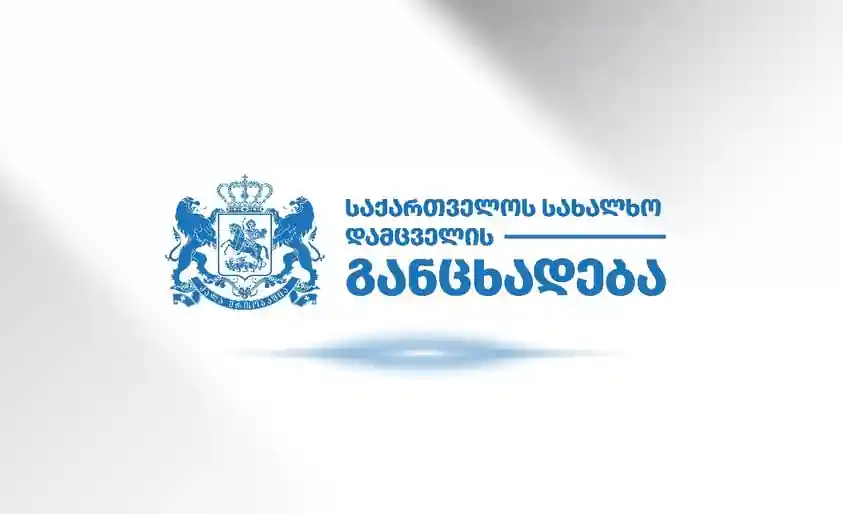Tbilisi, Georgia: The Ombudsman of Georgia has addressed recent cases of hate language targeting women and minors in political and social discourse, stressing that it is unacceptable to use rhetoric that spreads, promotes, or justifies hatred based on different opinions or social status, especially when such language directly or indirectly involves children.
It was also noted that the participation in political discussions by minors or their family members, including in public spaces or social networks, should not be degrading, stigmatizing, or spreading hate content against children. Every member of society needs to show utmost respect for children’s rights and special caution to avoid possible harm to minors by public speaking.
In addition, it means that, according to the standards of the European Court of Human Rights, the limit of criticism of public figures is broader. However, this does not include the manipulation of details of their personal lives or sexist assessments.
A politician’s marital status can be a subject of public interest only if it is directly related to his public activities, such as a conflict of interest or abuse of power. In a democratic society, attention should be paid to the content of political decisions and their impact and consequences on citizens.
The Public Ombudsman once again calls on all relevant entities, in particular, representatives of political parties, public figures, media platforms, and journalists to exhibit high-standard political and social responsibility, refrain from making hate-language, unethical statements, and promote a decent and fair social dialogue.



